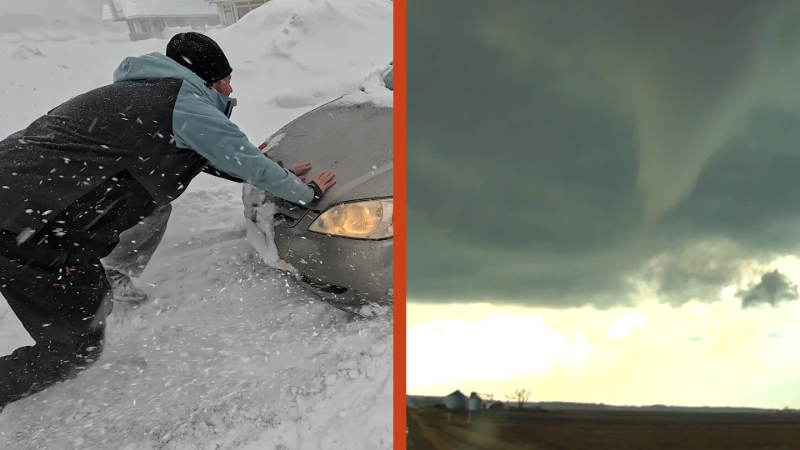Nicole's winds could reach critical threshold for NASA's Artemis I rocket
The launch of NASA’s Artemis I mission has been postponed again due to tropical weather, and AccuWeather warns that winds from Nicole could cause more significant delays.

The NASA moon rocket as stands on Pad 39B for the Artemis 1 mission to orbit the Moon at the Kennedy Space Center, Tuesday, Sept. 6, 2022, in Cape Canaveral, Fla. No new launch date has been scheduled as of today. (AP Photo/John Raoux)
NASA's highly-anticipated return to the moon might be delayed once again, not due to technical issues, but due to tumultuous tropical weather. Tropical Storm Nicole developed over the weekend, and AccuWeather forecasters are warning that it could strengthen into a Category 1 hurricane before making landfall along Florida's Atlantic coast.
Artemis I, the first mission of NASA's program to return humans to the surface of the moon, is slated to launch on Monday, Nov. 14, but the ominous forecast could disrupt the timeline. A hurricane warning is in effect for the Kennedy Space Center with the massive moon-bound rocket currently on the launchpad.
NASA announced on Monday that the 322-foot-tall rocket would stay on the launch pad through Nicole rather than rolling the rocket back to the Vehicle Assembly Building (VAB). It takes at least three days for ground crews to prepare the rocket to start its trip back to the VAB.
Less than a week ago on Friday, Nov. 4, the rocket was transported from the VAB to the launchpad ahead of the anticipated launch on Wednesday, Nov. 16 at 1:04 a.m. EST. The rocket is built to withstand wind gusts up to 85 mph (74.4 knots) at an elevation of 60 feet above the ground. Wind speeds of this magnitude are commonly found near the center of Category 1 hurricanes.
"For days, AccuWeather meteorologists have been highlighting the risk of hurricane-force winds, especially in gusts, to occur near the Kennedy Space Center as Nicole makes landfall early Thursday morning," AccuWeather Chief Meteorologist Jonathan Porter said. "The risk of hurricane-force wind gusts from Nicole near the Kennedy Space Center has increased even more on Tuesday."
AccuWeather meteorologists say that the risk of a wind gust of 85 mph or greater occurring near the Kennedy Space Center is 60%, or a six in 10 chance.

NASA's Space Launch System (SLS) rocket with the Orion spacecraft aboard is seen atop the mobile launcher as it rolls out to Launch Pad 39B, Friday, Nov. 4, 2022, at NASA's Kennedy Space Center in Florida. (Joel Kowsky/NASA via AP)
Even if the rocket is not damaged during Nicole, the tropical weather could still force NASA to delay the launch.
If rain, flooding or wind damages any of the ground systems or infrastructure at the Kennedy Space Center, it could push the launch to be delayed until later in the year.
The launch was initially scheduled for Monday, Nov. 14, but NASA has since rescheduled the launch for no earlier than Wednesday, Nov. 16. This postponement will allow officials to inspect the rocket and the ground systems after Nicole passes.
After Nov. 16, the next launch window is on Nov. 19.
Have the app? Unlock AccuWeather Alerts™ with Premium+
This is not the first time that tropical weather has interfered with the launch of the uncrewed Artemis I mission.
NASA was gearing up to launch the rocket at the end of September following setbacks over the summer, then Hurricane Ian threatened Florida.
Ian made landfall along Florida's Gulf coast on Sept. 28 as a Category 4 hurricane and weakened as it traversed the Florida Peninsula. The next morning, Ian was a tropical storm, and the eye of the storm was just 10 miles southwest of the launchpad at the Kennedy Space Center.
Want next-level safety, ad-free? Unlock advanced, hyperlocal severe weather alerts when you subscribe to Premium+ on the AccuWeather app. AccuWeather Alerts™ are prompted by our expert meteorologists who monitor and analyze dangerous weather risks 24/7 to keep you and your family safer.
Subscribe to AccuWeather on Apple News.
Report a Typo














